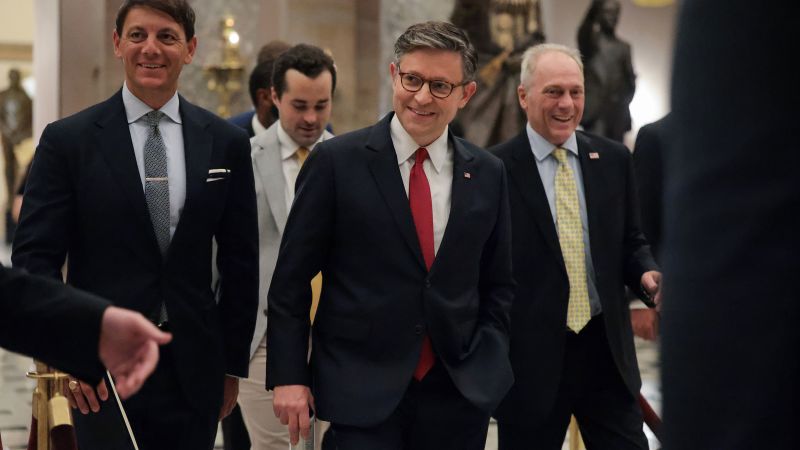A faction of House Republicans has shifted their stance to support President Donald Trump, allowing his agenda to proceed to a vote. This change comes after a period of resistance to a bill poised to add $3.3 trillion to the deficit over the next decade, with both hardliners and moderates expressing their concerns, particularly regarding potential cuts to Medicaid.
In the early hours of Thursday, the House overcame a significant procedural hurdle, advancing the bill with a vote tally of 219 to 213 — only one Republican, Rep. Brian Fitzpatrick, voted against it. Republican leaders are optimistic about securing enough votes to pass Trump’s extensive tax and spending cuts package during the upcoming full floor vote, though the exact timing remains uncertain.
Leading up to this vote, Trump and his aides have assured congressional leaders that they would convince reluctant hardliners to back his proposals. Intense negotiations have taken place, including meetings at the White House designed to address Republican concerns about the Senate version of the legislation. House GOP leaders are now under pressure to unify their members as they face a slim margin for error, with only three members allowed to vote against the bill if all are present.
Trump’s meetings with centrist Republicans have reportedly been positive. Dr. Mehmet Oz, who oversees the agency managing Medicaid, was invited to clarify provisions related to the bill, aiming to alleviate concerns raised by lawmakers regarding potential impacts to healthcare in their respective districts. “Those meetings are having a big impact, members are moving to yes,” said Rep. Dusty Johnson of South Dakota.
House Majority Whip Steve Scalise emphasized Trump’s role, noting, “The president from day one has been our best closer, and he’s going to continue to be through today.”
As the vote approaches, both Johnson and Trump are determined to meet a self-imposed deadline for the bill to reach the president’s desk by July 4, leaving minimal time for negotiations. Republicans can only afford to lose three votes to pass the legislation, heightening the stakes for the party amid ongoing divisions.
Historically, this week could be pivotal for Trump’s second term. While his administration has faced significant infighting, leading some party members to express concerns about electoral repercussions in the 2026 midterms, successful passage of the bill could bolster his legacy on critical issues like border security and tax reform. The package also aims to rein in federal spending through measures such as work requirements for able-bodied adults in Medicaid and SNAP.
Discussions continue apace at the White House, even as key conservatives remain vocal about their desire to amend the Senate version. Rep. Chip Roy, a prominent critic, stated, “It’s not ‘take it or leave it.’ I don’t need take it or leave it legislating.” Meanwhile, Rep. Andy Harris, chairman of the Freedom Caucus, expressed his dissent, confirming he would not attend meetings with Trump, stating, “I’m still voting no on the rule. We have to get this thing right.”
The passage of the bill in the Senate was a hard-won victory for Trump, and its approval in the House remains uncertain as GOP leaders attempt to address the demands of both moderate members and staunch conservatives. High-stakes moments continue to define the legislative climate in Washington, particularly as key procedural votes approach, where discontent among conservatives could complicate the approval process.
The House Rules Committee advanced the rule associated with Trump’s agenda after an extensive meeting, but some conservatives, including Chip Roy and Ralph Norman, opposed it, uniting with Democrats in dissent. As further discussions unfold, the urgency and complexity surrounding the legislation underscore the turbulent nature of current Republican unity and strategy.
Despite differing opinions on deadlines, some members like Rep. Thomas Massie have reiterated their objections, emphasizing concerns about the nation’s fiscal health. “There’s no reason to bankrupt the country because you want to go shoot off some fireworks,” Massie stated.
This piece will be updated with the latest developments as the legislative scenarios evolve.












